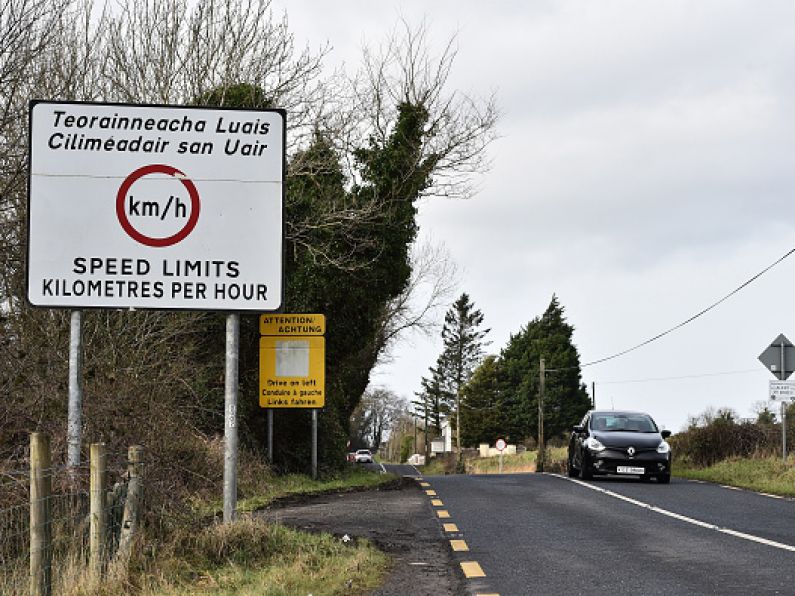A new study has shown a United Ireland would cost €20 billion each year for two decades.
The report published by the Institute of International and European Affairs is authored by the Economic and Social Research Institute’s John FitzGerald of Trinity College Dublin and Dublin City University academic Prof Edgar Morgenroth.
According to the study, basic unification costs after losing the London subvention and adjusting for other factors would run to nearly €11 billion a year.
However, the cost would jump to €20.5 billion if social welfare, pensions and public service pay rates to people in Northern Ireland were brought into line with those currently in force in the Republic.
Public expenditure
Unification would add around five per cent of Gross National Income (GNI) to the Irish Government’s deficit. If welfare payments is included, that would take the cost to Ireland of supporting Northern Ireland within a united Ireland to almost 10 per cent of GNI.
This would add a quarter to public expenditure in Ireland (total Government expenditure in Ireland currently amounts to around 40 per cent of GNI), while producing a very limited increase in revenue.
The report adds this would lead to a dramatic increase in taxation.
When Germany was unified, the economic and social systems of East Germany were immediately changed to those of West Germany. However, convergence in terms of private sector wages has not been achieved yet.
The report concludes even though Ireland has a much higher national income, funding the needs of the people of Northern Ireland in a united Ireland would put huge financial pressure on the people of Ireland.
To reduce the cost of reunification, they suggest Northern Ireland should make major changes in its economy designed to dramatically raise productivity.
Westminister
Unification would also likely mean the British government would refuse to continue paying £2.5 billion worth of pensions to people living in Northern Ireland.
The outcome of negotiations between a United Ireland and the UK would also have consequences should Scotland become independent.
If Scotland had voted for independence in 2014, the agreement for the break-up of the UK would have entailed Scotland leaving it with a share of the UK debt.
Sinn Féin TD Padraig MacLochlainn has disputed the methodology of a report by the Institute of International and European Affairs which said that a united Ireland would cost €20 billion every year for 20 years which would require an increase in taxation of around 25 per cent and a significant reduction in expenditure.
Mr MacLochlainn told RTÉ radio’s Today with Claire Byrne show that the analysis was static and accepted the amount of subvention at face value.
“Professor John Doyle of DCU in recent times, has written that the actual subvention is much less. It's about 2.4 billion. That's about a quarter of what the British government, when you deduct their pensions, debt repayments, contribution to the defence forces of Britain and so on. And so it's much less than the headline figure.
“But also the report assumes there'll be no economic growth in the North. We know that since Brexit there's been substantial growth in the All Ireland economy. We know that there is a real opportunity, and that's thanks to the efforts of all of the political parties and people on the island of Ireland.
“We ensured there was no hard border on the island of Ireland. That means the people of the north of Ireland have access to the British economy and to the European economy uniquely so, there's a real opportunity for economic growth.
Economic growth
“Professor Seamus McGuinness, economics professor of the ESRI, he's criticised this report and that it's it doesn't make any provision for economic growth in the North over the time ahead.
"But what I do praise Edgar for and John is doing some type of research, doing some type of planning, some type of analysis, which is very different from our own government, who have no plan whatsoever to look at how we get to Irish unity.”
Mr MacLochlainn pointed to reports from Professor Kurt Huebner, who worked on German reunification and looked at the model that they used and how that would apply to Ireland. “He forecast 35 billion of growth over eight years. You have people like David McWilliams who've talked about how we could manage this.”
Mr MacLochlainn called for a Citizens Assembly and a White Paper from the Government on the issue of reunification.
“Nobody assumes that in the context of Irish reunification, where people on both sides of the border have voted for a united Ireland, that the British government just walks away from the pitch.”
There was a process through the Good Friday Agreement through which Britain would continue to have a responsibility to Unionists.
“I am very open to that as an Irish republican, that the Unionist population on the island would continue to have some type of relationship with Britain. You have to assume that Britain will have and indeed would step up to take financial responsibility, moving forward. So I think this report is the worst case scenario. And, and it would be heavily disputed by a range of professors and economic analysts.”
Additional reporting from Vivienne Clarke
By Michael Bolton
Keep up to date with all the latest news on our website Beat102103.com.






